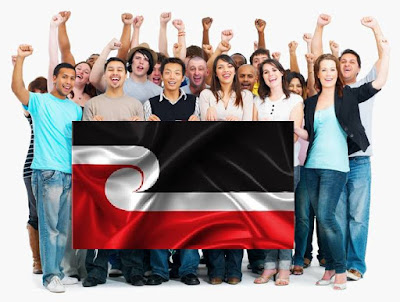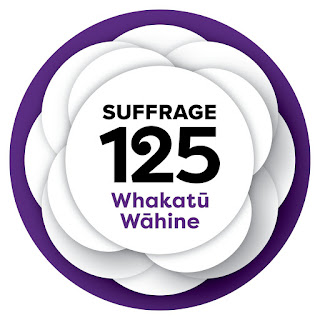Individualism in Activism Organising
Individualism is part of the dominant western culture’s ideology. Look after yourself first. You are an individual with no collective responsibility. Your individual desires and needs are more important than the collective – that’s why it’s totally fine for one person to own more wealth and resources than a million other people. That’s why it’s totally fine for most people to live in abject poverty while a tiny percentage of the earth’s population can kill, exploit and enslave for their own benefits and horde all the wealth. That’s why private property exists. The idea of individualism is fundamental to the differences between western and many non-western and indigenous cultures. Coming from a culture where the collective, usually in the form of a family, is prioritised over individual interests.
Seeing yourself as separate from the community or society means you don’t need to feel any responsibility for the well being of the rest of the society. The most common excuse we hear as activists when we campaign about issues and try to involve new people is: “I don’t care. It doesn’t affect me”. To me, that epitomizes the inherent individualism in the dominant culture. We need to address that in order to work collectively and effectively. At the end of the day we can’t change society by ourselves, we have to work together. We have to create a social environment where we value solidarity, equality and liberty and discourage individualism, hierarchy and domination.
This problem affects everyone, and those who are most aware of it should be actively challenging individualistic tendencies. However, in most anarchist or grassroots activist groups, there is informal and obvious hierarchy. This hierarchy is usually created when tasks or actual organizing and functioning of the group depends on an individual or a small power block of friends or couples. Sometimes it is deliberate control-freakness and domination but sometimes it can also the problem of apathy and the followship of other members involved in the group.
When there is unequal distribution of tasks or responsibilities within a group, hierarchy emerges. To have the most responsibility on the shoulders of one or two people is not only unsustainable it is also unfair. And that’s usually when hierarchical structures emerge. It is a difficult problem to resolve because the reality is that we all have different amounts of time and energy to contribute. We all have different levels of experience, confidence, skills and ability. In addition, there’s gender dynamics, class issues, cultural/ethnic hierarchies, ageism and the most frustrating are the individualistic attitudes of egocentric and arrogant white men.
First with the problem of leadership: the way activism and anarchist culture is designed in contemporary Aotearoa is suitable mostly for privileged, middle class, educated white men who have a lot of time on their hands, who have the confidence (or is it arrogance?) to work (or socialize) themselves to hold a high-ranking position within the scene. The constant competition and ego wars are ridiculously draining for people who are serious about bringing this shit system down. I’m sure these people are also serious about anarchist politics but their ego is in the way of non-hierarchical and empowering forms of organizing. So instead of minimizing their privilege and empower those marginalized by the system, they sit comfortably at the top seeking glory.
Followship, as much as leadership, is to blame. For people who claim to be anti-authoritarian, who are capable of organizing and who have the time and energy to share responsibilities, to be inactive and apathetic allows and helps to legitimize hierarchy within groups. The lack of initiatives and dependency could be due to disempowerment but it could just be general laziness or just there for the scene kind of thing. But what this means is that responsibility becomes concentrated in the hands of a few who do all the work, while other members turn up to stuff like demos where they don’t need to do much except march and chant. Lack of participation of the majority of members creates hierarchy and forces leadership onto those who feel responsible for the group’s survival.
In order to have a non-hierarchical, egalitarian group that functions and organizes actively means that members have to participate and contribute and take initiative and organise collectively. It also means roles and responsibilities have to be rotated and skills shared. There needs to be a sense of collective responsibility for the group’s functioning or else it’s going to be short-lived and ineffective. There needs to be cohesion, trust and community; a commitment to collectivism and empowerment not encouraging individualism and inequality. That’s how we can work together better, that’s how we can be more effective in challenging state domination and social hierarchy.
Seeing yourself as separate from the community or society means you don’t need to feel any responsibility for the well being of the rest of the society. The most common excuse we hear as activists when we campaign about issues and try to involve new people is: “I don’t care. It doesn’t affect me”. To me, that epitomizes the inherent individualism in the dominant culture. We need to address that in order to work collectively and effectively. At the end of the day we can’t change society by ourselves, we have to work together. We have to create a social environment where we value solidarity, equality and liberty and discourage individualism, hierarchy and domination.
This problem affects everyone, and those who are most aware of it should be actively challenging individualistic tendencies. However, in most anarchist or grassroots activist groups, there is informal and obvious hierarchy. This hierarchy is usually created when tasks or actual organizing and functioning of the group depends on an individual or a small power block of friends or couples. Sometimes it is deliberate control-freakness and domination but sometimes it can also the problem of apathy and the followship of other members involved in the group.
When there is unequal distribution of tasks or responsibilities within a group, hierarchy emerges. To have the most responsibility on the shoulders of one or two people is not only unsustainable it is also unfair. And that’s usually when hierarchical structures emerge. It is a difficult problem to resolve because the reality is that we all have different amounts of time and energy to contribute. We all have different levels of experience, confidence, skills and ability. In addition, there’s gender dynamics, class issues, cultural/ethnic hierarchies, ageism and the most frustrating are the individualistic attitudes of egocentric and arrogant white men.
First with the problem of leadership: the way activism and anarchist culture is designed in contemporary Aotearoa is suitable mostly for privileged, middle class, educated white men who have a lot of time on their hands, who have the confidence (or is it arrogance?) to work (or socialize) themselves to hold a high-ranking position within the scene. The constant competition and ego wars are ridiculously draining for people who are serious about bringing this shit system down. I’m sure these people are also serious about anarchist politics but their ego is in the way of non-hierarchical and empowering forms of organizing. So instead of minimizing their privilege and empower those marginalized by the system, they sit comfortably at the top seeking glory.
Followship, as much as leadership, is to blame. For people who claim to be anti-authoritarian, who are capable of organizing and who have the time and energy to share responsibilities, to be inactive and apathetic allows and helps to legitimize hierarchy within groups. The lack of initiatives and dependency could be due to disempowerment but it could just be general laziness or just there for the scene kind of thing. But what this means is that responsibility becomes concentrated in the hands of a few who do all the work, while other members turn up to stuff like demos where they don’t need to do much except march and chant. Lack of participation of the majority of members creates hierarchy and forces leadership onto those who feel responsible for the group’s survival.
In order to have a non-hierarchical, egalitarian group that functions and organizes actively means that members have to participate and contribute and take initiative and organise collectively. It also means roles and responsibilities have to be rotated and skills shared. There needs to be a sense of collective responsibility for the group’s functioning or else it’s going to be short-lived and ineffective. There needs to be cohesion, trust and community; a commitment to collectivism and empowerment not encouraging individualism and inequality. That’s how we can work together better, that’s how we can be more effective in challenging state domination and social hierarchy.


Comments
Post a Comment